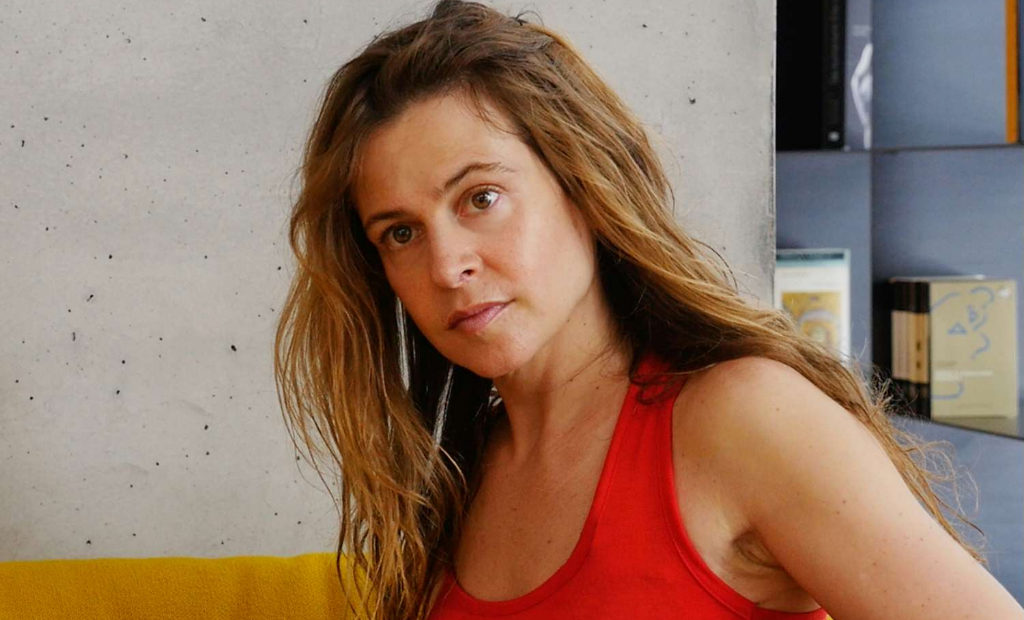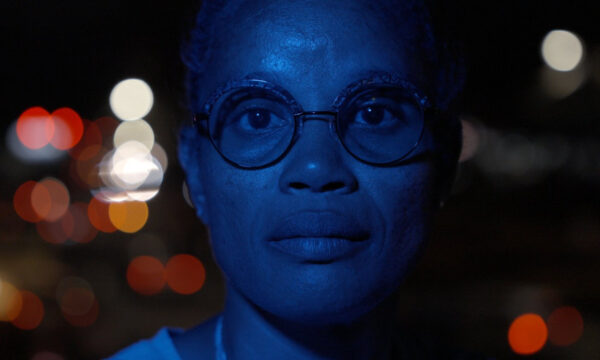“Motherhood is a very complex human event that society always tries to simplify”: Director Maura Delpero on Maternal

Maternal is the debut feature from Italian director Maura Delpero. It is being screened in competition at this year’s Locarno Film Festival. The film is set in a hogar – a religious centre – in Buenos Aires. It is about motherhood, desire and responsibility. It is one of the most striking films of the festival.
Can you talk about the research you undertook for the film and your choice to work with nonprofessional actors?
I looked at four different hogars for four years. One was particularly interesting, a Catholic religious centre. This produced a contrast between habits [of the residents]. I was teaching filmmaking as an excuse to be there. It was a success because they accepted me. I listened to their desires, dreams and problems as both teenagers and mothers. I was able to be near to them, which was a great opportunity. I just had a notepad – no camera. I wanted to be a fly on the wall. Each story came in a very natural way. I was absorbing – I was seeing, smelling and hearing. It was very sensory. When you’re in an enclosed space, it’s very tense. It was a big human experience. The actor who plays Lu was born in a hogar and when she got pregnant she was 14 and she went back to another hogar. She saw it from both perspectives. We were open to lots of possibilities with casting. I wanted a very vivid reality so I went back to the hogar and found the actor [Agustina Malale] there. She was impressive. When she read the script she said, “that’s similar to me!”
There are different types of mothers in the film. What are you trying to say about motherhood?
Motherhood is a very complex human event that society always tries to simplify. Advertisers always show the blonde child with the mother. My interviews showed that there are different types of mothers. Spiritual mothers, the nuns – they take care of children. But the mothers of the children are so young they need mothers. Sister Paola in the film is the figure of a good mother. Fati did not have a good mother. She needed someone to protect her. She needs a mother she can trust. I wanted to give a plurality of mothers.
Does religion play an ambiguous role in the film?
It isn’t about the institution but of course it is ambiguous. It is both about protection and enclosure. For Sister Paola it is her choice but it’s also the possibility of following something she’s feeling. It’s like a mirror of the interior conflict with every mother: between desire and responsibility. To me, it was interesting that two characters so opposite, Lu and Sister Paola, they are like black and white, and at the end of the film they are women who have followed what they should not have.
Since the military junta, Argentinian history has been dominated by mothers pursuing political justice for the forced disappearances of their children. Why did you choose Argentina – or Buenos Aires in particular – for the setting?
It’s a very contradictory country. There are very progressive points but they don’t have legal abortion like most European countries. There is much more teenager pregnancy because abortion can only happen if you pay a lot. So it speaks to the socioeconomic difference. It talks about Argentinian society as a contradiction.
There are very few glimpses of men in the film. You definitely pass the Bechdel Test. Men are only relevant by their absence.
I would win! It was an organic choice. The fathers of these children are teenagers. It’s very difficult to take the responsibility of fatherhood and they didn’t take it. We see a completely feminine work and we notice it. We see a lot of masculine films and we never talk about it because we are used to it. We now have more women faces and more women stories because more women participate in the industry of cinema. The world is made by women and men. This is a very personal film. There is a lot of me in the script. It was natural. There are not men in this world. But there are positive little men. The son says to Fati: “I have muscles, I will protect you.” He is a positive figure, a progressive figure.
The film is very attentive to its images. What does the balcony in the hogar symoblise?
Balconies and windows indicate the outside; they indicate escape. They suggest risk. It is a little preview of what happens at the end of the film. I wanted it to be completely inside the hogar because I wanted the viewer to have the same experience as the girls inside.
Did you have any direct influences when making the film?
I love cinema because it is a plural art. I was influenced by art and photography as well as cinema.
Joseph Owen
Read our review of Maternal here.
Read more reviews from our Locarno Film Festival 2019 coverage here.
For further information about the event visit the Locarno Film Festival website here.
























Facebook
Twitter
Instagram
YouTube
RSS